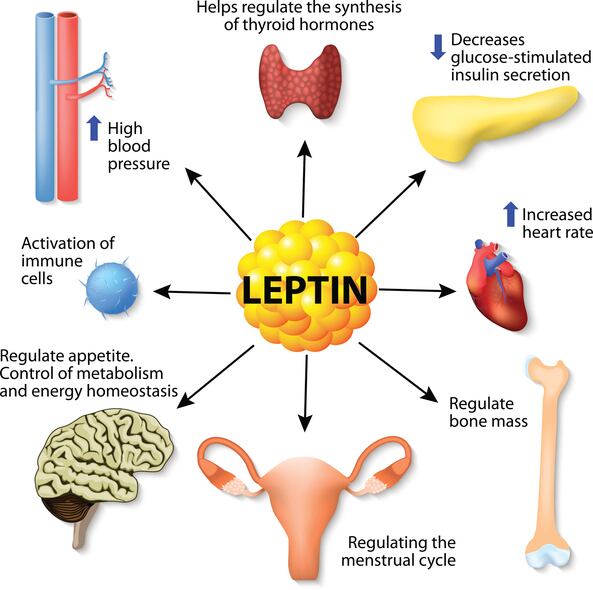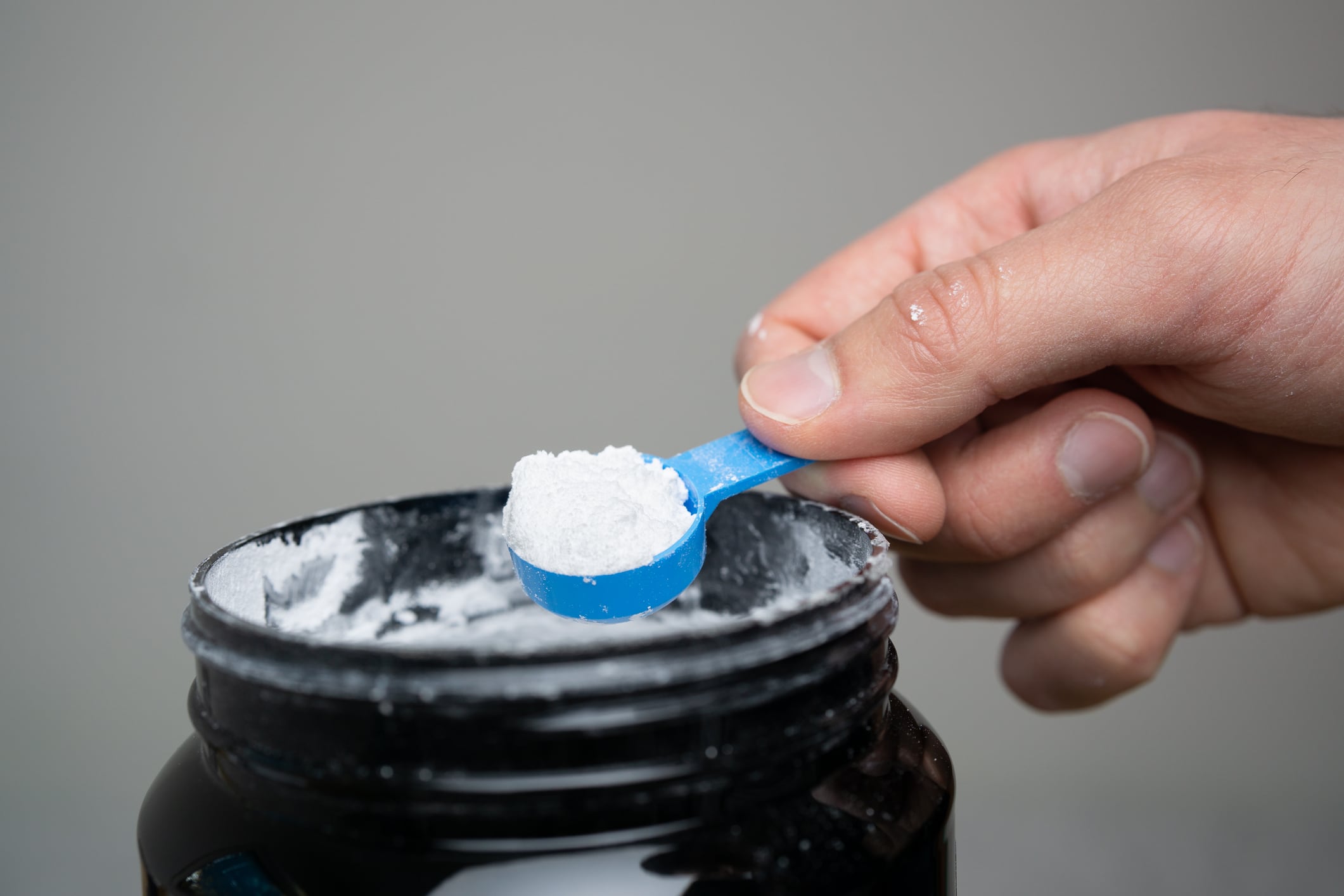Researchers from the Applied Bioenergetics Lab at the University of Novi Sad in Serbia drew on data from a nationally representative U.S. population to investigate the potential relationship between higher dietary creatine and lower levels of leptin, a hormone involved in appetite regulation.
“Higher dietary creatine intake appears to be associated with lower leptin levels, indicating a possible role for creatine in modulating long-term energy balance through mechanisms beyond its well-documented effects on muscle metabolism,” they wrote in the journal Current Nutrition & Food Science.
The study analyzed data from 6,415 men and women in the 1988–1994 National Health and Nutrition Examination Survey, using 24-hour dietary recalls to estimate creatine intake and measuring fasting serum leptin levels.
Creatine and appetite regulation
Highly concentrated in energy-demanding tissues including skeletal muscle, the brain, the retina and other metabolically active organs, creatine’s primary function is to support cellular energy production by replenishing adenosine triphosphate (ATP).
“Beyond its well-established role in ATP regeneration, creatine may also influence broader aspects of energy metabolism, including the potential modulation of appetite,” the researchers hypothesized. “However, the evidence on this relationship remains inconclusive.”
This study folds into the Creatine Complete project, led by Sergej Ostojic, PhD, head of the University of Novi Sad’s Applied Bioenergetics Lab. The work includes studying creatine’s metabolism in both health and disease, as well as exploring its potential as a nutrient—not just as a supplement.
“Some animal studies have suggested that creatine may play a role in appetite control, which led me to investigate whether there is an association between dietary creatine intake and leptin, a key hormone that regulates appetite in humans,” Dr. Ostojic told NutraIngredients.
“In addition, since people sometimes gain weight during creatine supplementation, I began to consider whether mechanisms other than increased hydration might be involved in this process.”
The leptin mechanism
The study suggests that creatine may influence body weight through an additional pathway—by lowering leptin levels, which could stimulate appetite and promote increased energy intake.
Leptin, a peptide hormone produced by fat cells, acts as a messenger to the brain about the body’s energy stores. Circulating leptin concentrations are proportional to total body fat mass, serving as a signal of energy sufficiency to central regulatory systems. When fat stores are high, leptin levels rise, signaling satiety and potentially decreasing appetite.

“While physiological levels of leptin are essential for maintaining energy balance, chronically elevated leptin concentrations—often observed in individuals with obesity—are indicative of leptin resistance, a state in which the central appetite-suppressing effects of leptin are diminished,” the researchers noted.
To support their hypothesis, they cited a 2006 animal study that linked creatine concentrations in the brain to regulation of food intake and body weight and demonstrated that creatine transporter mRNA is highly expressed in several hypothalamic regions involved in appetite regulation. Here, experimentally reducing brain creatine levels led to decreased food intake.
Although the researchers noted that no direct interaction between creatine and leptin has been confirmed, they theorized that creatine may influence leptin levels indirectly through a few interconnected pathways.
“For example, by helping reduce body fat—especially when combined with exercise training—creatine could lower leptin levels since smaller fat cells produce less of it,” Dr. Ostojic said. “Creatine also boosts cellular energy metabolism, which may influence how leptin is made in fat tissue and how sensitive the brain is to its signals. On top of that, creatine’s possible cerebral effects in reducing inflammation and supporting healthy mitochondria could make leptin signaling work differently.”
Commenting independently on the study, Jacqueline Jacques, Naturopathic Doctor, Fellow of the Obesity Society, and president & cofounder of Thrive Advisory Group, noted that while the findings suggest an intriguing link between creatine and leptin, further research is needed establish a causal relationship.
“While associated with lower fat mass, lower circulating leptin is also associated with increased hunger,” she said. “Increased hunger could obviously lead to increased caloric intake, outweighing potential benefits, so in my mind the real question becomes ‘If leptin is lower, what is the net effect on appetite and weight?’”
More research needed
The researchers on the study also highlighted that though these preliminary results support a plausible link between creatine and leptin dynamics, results should be interpreted with caution due to the cross-sectional design, reliance on a single 24-hour dietary recall and the absence of data on other appetite-regulating pathways. They called for further research to clarify underlying mechanism, causality and broader metabolic implications.
In his lab, Dr. Ostojic plans look at whether creatine intake influences other appetite-regulating hormones besides leptin and if it affects appetite control in sensitive groups, such as people with eating disorders.
“It would also be important to confirm how different doses of creatine impact appetite and to determine how strongly creatine’s appetite-related effects contribute to changes in body weight in the general population,” he added.
Source: Current Nutrition & Food Science. doi: 10.2174/0115734013395816250715145327. “Dietary Creatine Intake and Serum Leptin Levels: A Population-Based Analysis”. Authors: Marijana Ranisavljev et al.



